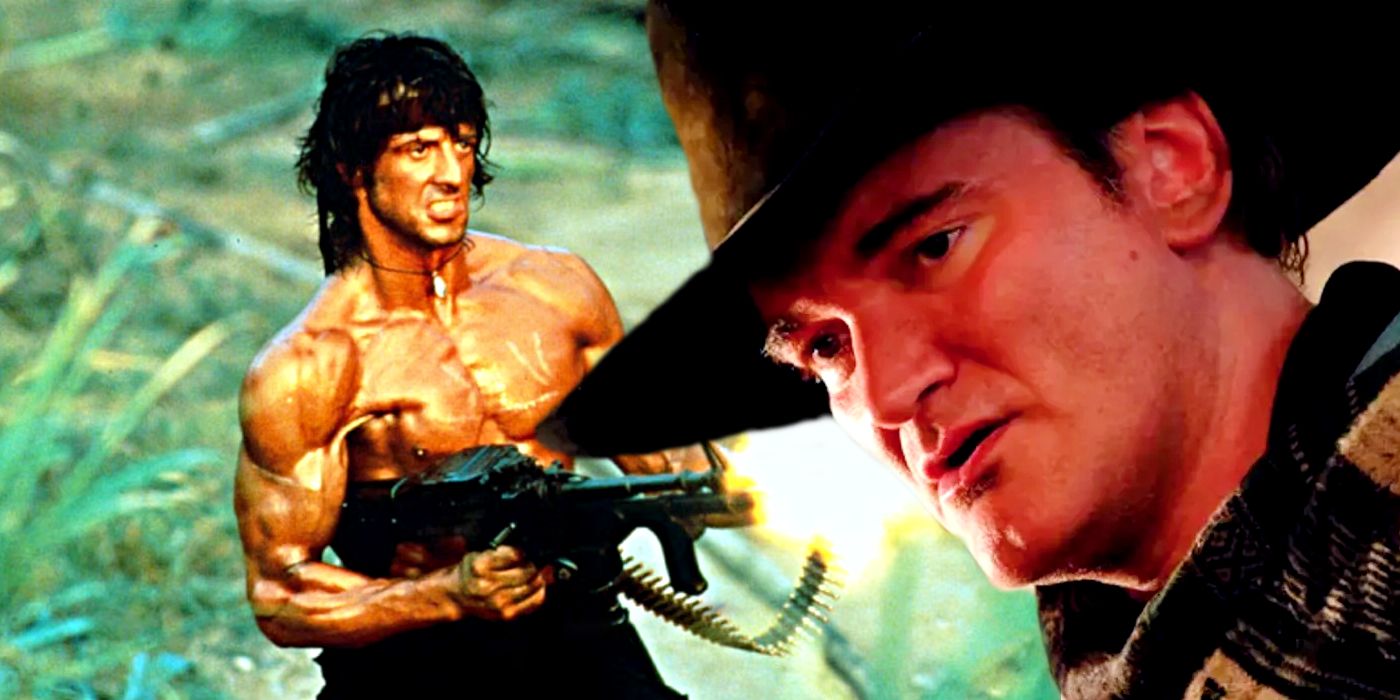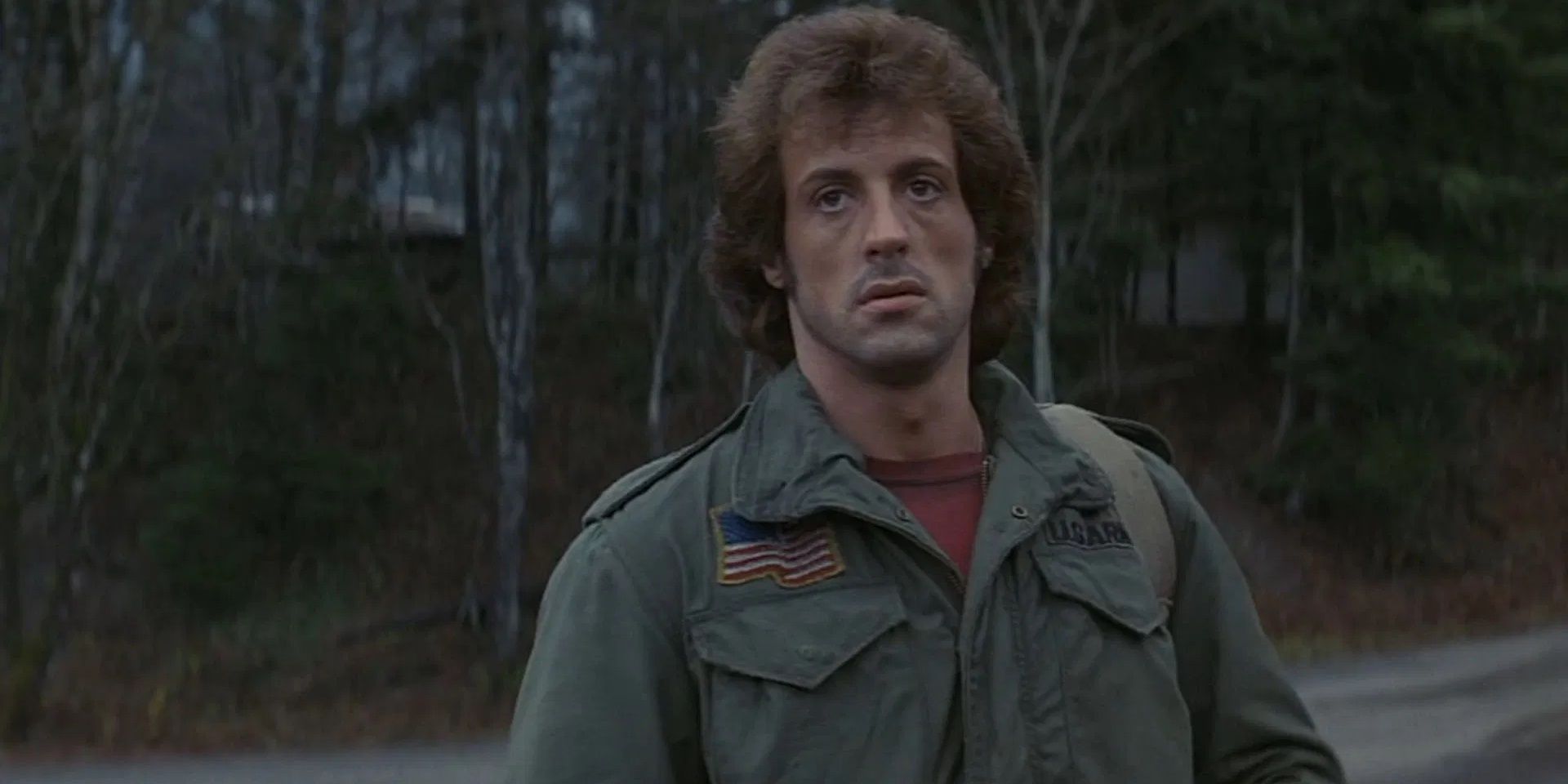Quentin Tarantino's authorial preoccupations have some surprising overlaps with the themes of the Rambo franchise. There are distinct parallels between the worldview of the Rambo of the series' earlier films and that of the protagonist of Quentin Tarantino's most recent movie, Once Upon A Time In Hollywood. Quentin Tarantino's interest in a First Blood remake makes even more sense when additional factors are considered.
Rick Dalton (Leonardo DiCaprio), the protagonist of Once Upon A Time In Hollywood, feels as though his values are out of step with the society in which he finds himself. Hippies, who purportedly abhor the sort of violent acts he enacted on-screen when he was a successful film actor (despite some of them aiming to kill him, his stunt double Cliff Booth (Brad Pitt), his wife Francesca Capucci (Lorenza Izzo), and his neighbors Sharon Tate (Margot Robbie) and Jay Sebring (Emile Hirsch)) walk the streets of 1969 Los Angeles, with their counter-cultural values beginning to affect the sort of movies that get made. This has led to a lack of desire among young moviegoers for movies starring violent, retrograde dinosaurs like Dalton, and a concomitant drying-up of offers for him to star in major motion pictures.
Similarly, when John Rambo (Sylvester Stallone) is introduced in First Blood, the initial installment in the Rambo movie franchise, he is a man who feels that the values for which he once stood have been rejected by mainstream US society. He has risked his life for his country in the Vietnam War, only to come home and find himself unemployable and protested against by the sort of hippies also detested by Once Upon A Time In Hollywood's Rick Dalton. Even Sheriff William "Will" Teasle (Brian Dennehy), a representative of law enforcement who would seem to be a fellow hippie-hater and natural ally of Rambo's, harasses, abuses and attempts to eject Rambo from the small Washington state town he polices. All this contributes to Rambo viewing himself, much like Dalton does, as an unchanged man in a changing world that no longer has a place for him. These thematic similarities mean that Quentin Tarantino is ideally suited to a First Blood remake, given his clear understanding of the subject.
There were many attempts to adapt David Morrell's source novel throughout the 1970s, an era dominated by darker, more pessimistic filmmakers like Brian de Palma, whose directorial style is an artistic antecedent of Quentin Tarantino's. A Quentin Tarantino First Blood remake could show what an adaptation of the novel by such a director might have looked like. It could incorporate the novel's climactic killing of Rambo, vetoed from the Stallone-starring version, more believably than a movie made amid the Reagan era's jingoistic optimism. Quentin Tarantino's well-documented love of on-screen blood-letting would also serve a remake well, and could reintroduce the extreme violence that is so distinct about subsequent Rambo movies to the far tamer First Blood.
A remake of First Blood would be an ideal final movie for Quentin Tarantino. Once Upon A Time In Hollywood shows that he already has an interest in, and a talent for dealing with, its main themes. The First Blood novel's ending, in which Rambo, Stallone's character, dies, would be better served by Quentin Tarantino's 1970s-influenced style than it was by a Reagan-era adaptation made by the gung-ho Carolco production company. It could also give an idea of what might become of Rick Dalton if the Manson Family's attempted murder of him at the end of Once Upon A Time In Hollywood does not give his career the unexpected boost that it does.


